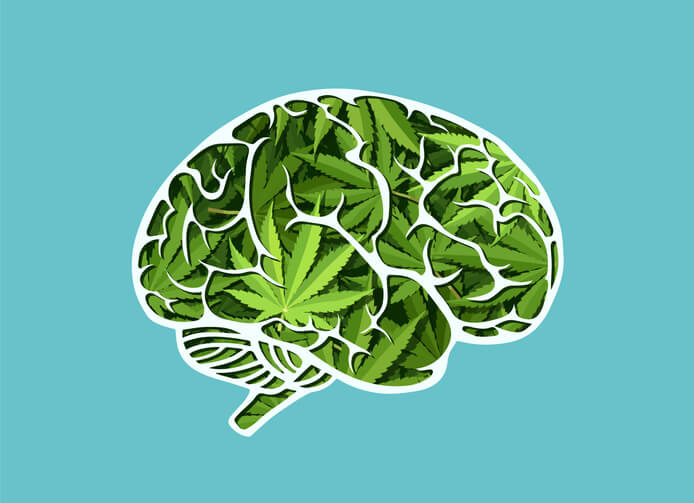Think Weed is Harmless? Recent Study Shows It Could Age Your Brain By Almost Three Years!

The use of marijuana for recreational purposes has recently become legal in multiple American states. Reportedly, one in 25 U.S. adults use marijuana. This includes the state where I live, California. I find this recreational use very concerning, because it contributes to the growing belief that marijuana is harmless.
Marijuana is not harmless. I previously discussed how a myriad of credible research supports the conclusion that regular or heavy use of marijuana may have permanent effects on the developing brain when the use begins in adolescence.
Now, a recent study found evidence which supports the conclusion that using marijuana may age the brain by nearly three years!
The largest study of its kind, researchers examined cerebral blood flow from 62,454 brain scans from 31,227 people.
“The scans were performed during periods of concentration and rest on people aged between nine months old and 105 years old. They were trying to establish factors that contribute to and define brain ageing,” according to one report discussing the study.
“Basically, the scientists analysed the blood flowing through 128 different regions of the brain and then used that data to determine the age of the person whose brain they were looking at."
Blood carries oxygen and nutrients to the brain. And reduced blood flow to this vital organ is actually a way that brain aging is defined. Reduced blood flow to the brain has been linked to stroke and dementia.
Once the scientists were told the actual age of the person whose brain they were looking at, they could decipher how much accelerated aging affected a particular brain.
They also discovered evidence which showed:
- Schizophrenia exhibited on average four years of premature brain aging
- Marijuana, 2.8 years of accelerated aging
- Bipolar disorder, 1.6 years
- ADHD, 1.4 years
For me, this really puts things into perspective. Of this list of things that could accelerate brain aging, marijuana placed second. So if you think marijuana is harmless, you might want to rethink!
It is also important to note that drinking alcohol was only found to age the brain by 0.6 years. However, as I have blogged about many times, consuming alcohol in excessive amounts may promote inflammation throughout the body and deplete the body of essential vitamins and minerals, including zinc, vitamin C, magnesium, iron and more. And this, in turn, can increase your chance of developing health issues as well as overall make you age more rapidly. lThis may be why some people who drink heavily try to replace some of the nutrients lost with a Meyers Cocktail.
We may not be able to completely percent control developing health issues that affect our brains such as bipolar disorder and schizophrenia, but we can certainly control our drug and alcohol use.
Clearly these findings stress the importance of keeping our brains young despite our actual age by avoiding unnecessary recreational drug use.
How else can we be proactive about slowing down the aging of our brains?
Nutrition. Nutrition. Nutrition!
I cannot emphasize enough the importance of keeping our brains healthy and young by fueling our bodies and brains with the nutrients, such as vitamins and minerals, that it needs to function and stay healthy.
You want to maintain an anti-inflammatory diet (which includes plenty of nutrient-dense fruits and vegetables) as opposed to a pro-inflammatory diet (which consists of nutrient-void, processed junk foods). To read more about diet tips, read here.
Also read here to learn about how to maintain nutrient-rich blood, which may help keep your brain young and healthy.
Finally, it is imperative that we all maintain nutritional balance. Take routine, comprehensive nutrient tests in order to determine if you have any nutrient imbalances or deficiencies. If you do, a competent healthcare professional can work with you on making the necessary dietary changes and recommend quality supplements if necessary.
Enjoy your healthy life!
The pH professional health care team includes recognized experts from a variety of health care and related disciplines, including physicians, attorneys, nutritionists, nurses and certified fitness instructors. This team also includes the members of the pH Medical Advisory Board, which constantly monitors all pH programs, products and services. To learn more about the pH Medical Advisory Board, click here.







